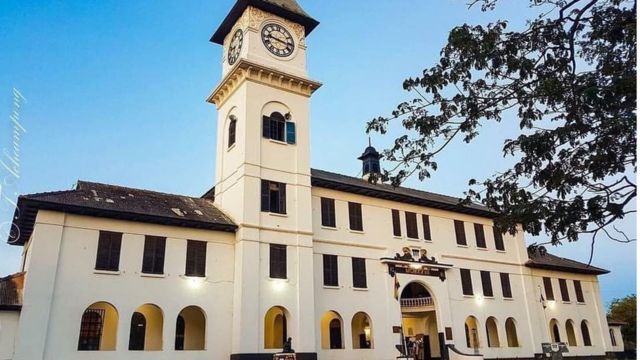
Rules, Rights and Rastafarians
Over the last week or so, many opinions have been expressed about Achimota School’s decision to prevent two Rastafarian high school students from attending classes due to their dreadlocks. Though this is not the first time in Ghana that children with dreadlocks have been told to cut them off to be permitted to attend school, it is the first such incident to have attracted this degree of attention.
That many of us have willingly and respectfully engaged in dialogue and debate with those of opposing opinions - however unreasonable, outdated or illogical we think they may be - is demonstrative of an engaged citizenry.
However, whether one supports or opposes the decision taken by Achimota is relevant only insofar as public sentiment may be taken into account by legislators. Given that Article 25(1) of the Constitution provides the right to equal educational opportunities and Article 28(4) explicitly states that children cannot be deprived of their education due only to their religious beliefs, the real crux of the matter is less about personal opinion regarding the appropriateness of particular hairstyles and more about what the law says, doesn’t say and how it may be interpreted.
The exclusion of the two boys from school can reasonably fall within the definition of ‘discrimination’ within the Constitution, which in Article 17(2) prohibits discrimination on certain grounds, including religion, creed and social status. Discrimination is permissible in some circumstances, however, none of the stipulated exceptions appears to be relevant. Further, the Children’s Act 1998 prohibits discrimination against children on several grounds, including custom and prohibits depriving children access to education.
Any assertion that Rastafarianism must be a “recognised” religion in Ghana is a non-starter. Article 26(1) of the Constitution gives everyone the right to practice any religion, culture or tradition subject only to the provisions of the Constitution. There is nothing in the Constitution that forbids the wearing of dreadlocks or denial of education based on dreadlocks.
By virtue of Article 14(1)(e), the right to liberty may be curtailed for a person under the age of 18 for the purpose of education. This provision is, arguably, irrelevant as the term liberty therein is most often perceived as pertaining to liberty of the person to be free from physical detention and not, for example, the liberty of freedom of expression.
The longer this dispute continues, the more psychological and emotional harm that may be done to the young people involved - potentially raising another human rights issue. It is important to highlight that the law asserts that the best interests of the child “shall be the primary consideration by any court, person, institution or other body in any matter concerned with a child”.
Children are the future of any nation, they must be protected and not subjected to demeaning conduct. The framers of the Constitution recognised this and included a provision that specifically prohibits the degrading treatment or punishment of children.
Further, the right to dignity, as stated in Article 15(1) of the Constitution is characterised as “inviolable” - meaning it cannot be violated. Being prevented from attending school due to hairstyle and/or religion may be reasonably classified as degrading treatment or punishment and an infringement of the right to dignity.
It is indeed necessary for institutions, including schools, to have rules and regulations to govern their day-to-day operations. However, these rules and regulations must be in accordance with law.
Even if Achimota’s stance is deemed not to be in violation of any laws, institutional rules and regulations which have an actual or perceived discriminatory effect on the education of children should be evidenced-based and not premised on personal opinions about what are acceptable social norms. In other words, there should be a legitimate and objective justification for the discrimination.
There is no indication that the school has made reference to any studies or data which reliably demonstrates that the wearing of dreadlocks negatively impacts the capacity to learn or student behaviour. Any incursion into the rights and freedoms of individuals, especially children, must be lawful and proportionate.
Moreover, rules and regulations are not static but change over time. This is necessary for social progress. In the 2018 Accra High Court (Human Rights Division) case of The Commissioner, CHRAJ & 2 Others v. Ghana National Fire Service & Attorney General, the late great Justice Anthony Yeboah held that the National Fire Service regulation that permitted the dismissal of female employees if they became pregnant within their first three years of employment was “discriminatory in effect, unjustifiable, illegitimate and illegal’’. As a result, he ordered the reinstatement of their employment, payment of their salary arrears and compensation in the amount of “GH¢50,000 for the trauma and inevitable inconvenience of the wrongful dismissal”. This is just one example that demonstrates that times change and certain laws and rules eventually need to change with the times.
Discrimination faced by people, usually of African or Indigenous origin, with dreadlocks or other so-called non-traditional hairstyles such as braids, twists, cornrows and afros has occurred in other jurisdictions such as South Africa, Canada and the USA. The courts have awarded many of these injured parties financial compensation. The relevant institutions and agencies here in Ghana may wish to avoid risking this potential outcome.
The writer is a Senior Lecturer in Law at the University of Cape Coast and a Lawyer qualified to practice in Ghana as well as England & Wales. She is also a Doctoral Candidate in Law at McGill University in Canada.
Writer's email: jselman-ayetey@ucc.edu.gh
